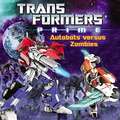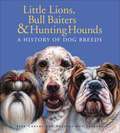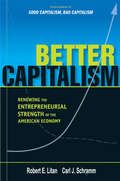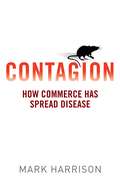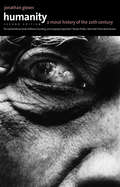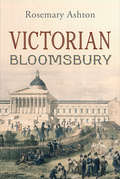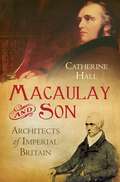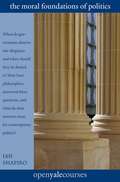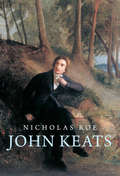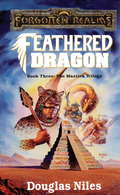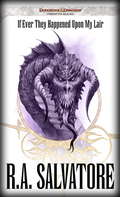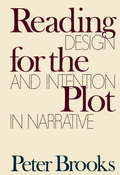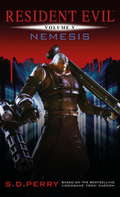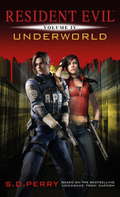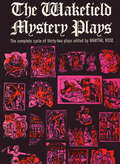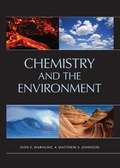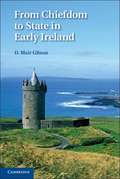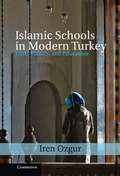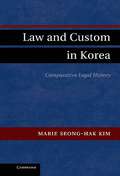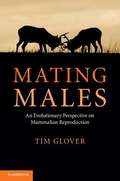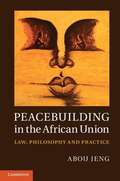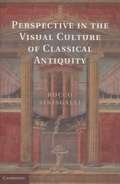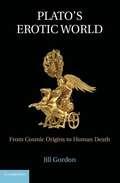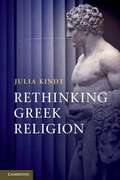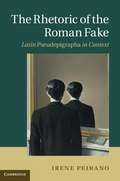- Table View
- List View
Transformers Prime: Autobots versus Zombies
by Zachary RauIn this follow-up novel to Switching Gears, 12-year-old Kevin Bowman is now working with the Autobots to fight the evil Decepticons and search for his missing brother. Kevin is starting to lose hope until he gets help from the most unexpected person-his nemesis, Douglas. Douglas informs the team of a secret cave of ancient Cybertronian weapons located at Battle Mountain, Nevada. Kevin and Gears believe the cave might have clues to the disappearance of Kevin's brother and other missing soldiers. Will the team find what they are looking for or has Douglas set a trap for them at Battle Mountain?
Little Lions, Bull Baiters, and Hunting Hounds: A History of Dog Breeds
by Jeff Crosby Shelley Ann JacksonSince prehistoric times, humans and dogs have shared a unique bond and both have served each other well. Early people discarded food and as a result, wild wolves cast fear and caution aside, following and approaching their two-legged neighbors until they became less wary of each other. As humans hunted, fished, herded, and hauled, they found ways to benefit from the presence and talents of these animals. Over time, both learned to work together, rely on, and like each other. This book is a fascinating look at the distinct groups that have developed -- hunting, herding, working, and companion -- as humans selectively bred dogs to bring out desired attributes.
Better Capitalism
by Robert E. Litan Carl J. SchrammIn the wake of the Great Recession and America's listless recovery from it, economists, policymakers, and media pundits have argued at length about what has gone wrong with the American capitalist system. Even so, few constructive remedies have emerged. This welcome book cuts through the chatter and offers a detailed, nonideological, and practical blueprint to restore the vigor of the American economy. Better Capitalismextends and significantly expands on the insights of the authors' widely praised previous book,Good Capitalism, Bad Capitalism, co-written with William Baumol. InBetter Capitalism,Robert E. Litan and Carl J. Schramm focus on the huge—but often unrecognized—importance of entrepreneurship to overall economic growth. They explain how changes in seemingly unrelated policy arenas—immigration, education, finance, and federal support of university research—can accelerate America's recovery from recession and spur the nation's rate of growth in output while raising living standards. The authors also outline an innovative energy strategy and discuss the potential benefits of government belt-tightening steps. Sounding an optimistic note when gloomy predictions are the norm, Litan and Schramm show that, with wise and informed policymaking, the American entrepreneurial engine can rally and the true potential of the U. S. economy can be unlocked.
Contagion
by Mark HarrisonMuch as we take comfort in the belief that modern medicine and public health tactics can protect us from horrifying contagious diseases, such faith is dangerously unfounded. So demonstrates Mark Harrison in this pathbreaking investigation of the intimate connections between trade and disease throughout modern history. For centuries commerce has been the single most important factor in spreading diseases to different parts of the world, the author shows, and today the same is true. But in today's global world, commodities and germs are circulating with unprecedented speed. Beginning with the plagues that ravaged Eurasia in the fourteenth century, Harrison charts both the passage of disease and the desperate measures to prevent it. He examines the emergence of public health in the Western world, its subsequent development elsewhere, and a recurring pattern of misappropriation of quarantines, embargoes, and other sanitary measures for political or economic gain—even for use as weapons of war. In concluding chapters the author exposes the weaknesses of today's public health regulations—a set of rules that not only disrupt the global economy but also fail to protect the public from the afflictions of trade-borne disease.
Humanity
by Jonathan GloverThis fascinating and profound book is about the psychology that made possible Hiroshima, the Nazi genocide, the Gulag, the Chinese Cultural Revolution, Pol Pot's Cambodia, Rwanda, Bosnia and many other atrocities. The author reveals common patterns - how the distance and fragmented responsibility of technological warfare gave rise to Hiroshima; how the tribalism resulted in mutual fear and hatred in Rwanda and the former Yugoslavia; how the systems of belief made atrocities possible in Stalin's Russia, in Mao's China and in Cambodia; and how the powerful combination of tribalism and belief enabled people to do otherwise unimaginable things in Nazi Germany. The common patterns suggest weak points in our psychology. The resulting picture is used as a guide for the ethics we should create if we hope to overcome them.
Victorian Bloomsbury
by Rosemary AshtonWhile Bloomsbury is now associated with Virginia Woolf and her early-twentieth-century circle of writers and artists, the neighborhood was originally the undisputed intellectual quarter of nineteenth-century London. Drawing on a wealth of untapped archival resources, Rosemary Ashton brings to life the educational, medical, and social reformists who lived and worked in Victorian Bloomsbury and who led crusades for education, emancipation, and health for all. Ashton explores the secular impetus behind these reforms and the humanitarian and egalitarian character of nineteenth-century Bloomsbury. Thackeray and Dickens jostle with less famous characters like Henry Brougham and Mary Ward. Embracing the high life of the squares, the nonconformity of churches, the parades of shops, schools, hospitals and poor homes, this is a major contribution to the history of nineteenth-century London.
Macaulay and Son
by Catherine HallThomas Babington Macaulay’sHistory of Englandwas a phenomenal Victorian best-seller defining a nation’s sense of self, its triumphant rise to a powerfully homogenous nation built on a global empire and its claim to bethemodern nation, marking the route to civilization for all others. In this book Catherine Hall explores the emotional, intellectual, and political roots of Zachary Macaulay, the leading abolitionist, and his son Thomas’s visions of race, nation, and empire. The contrasting moments of evangelical humanitarianism and liberal imperialism are read through the writings and careers of the two men.
The Moral Foundations of Politics
by Ian ShapiroWhen do governments merit our allegiance, and when should they be denied it? Ian Shapiro explores this most enduring of political dilemmas in this innovative and engaging book. <P><P> Building on his highly popular Yale courses, Professor Shapiro evaluates the main contending accounts of the sources of political legitimacy. Starting with theorists of the Enlightenment, he examines the arguments put forward by utilitarians, Marxists, and theorists of the social contract. Next he turns to the anti-Enlightenment tradition that stretches from Edmund Burke to contemporary post-modernists. In the last part of the book Shapiro examines partisans and critics of democracy from Plato's time until our own. He concludes with an assessment of democracy's strengths and limitations as the font of political legitimacy. The book offers a lucid and accessible introduction to urgent ongoing conversations about the sources of political allegiance.
John Keats: A New Life
by Nicholas RoeThis landmark biography of celebrated Romantic poet John Keats explodes entrenched conceptions of him as a delicate, overly sensitive, tragic figure. Instead, Nicholas Roe reveals the real flesh-and-blood poet: a passionate man driven by ambition but prey to doubt, suspicion, and jealousy; sure of his vocation while bitterly resentful of the obstacles that blighted his career; devoured by sexual desire and frustration; and in thrall to alcohol and opium. Through unparalleled original research, Roe arrives at a fascinating reassessment of Keats's entire life, from his early years at Keats's Livery Stables through his harrowing battle with tuberculosis and death at age 25. Zeroing in on crucial turning points, Roe finds in the locations of Keats's poems new keys to the nature of his imaginative quest. Roe is the first biographer to provide a full and fresh account of Keats's childhood in the City of London and how it shaped the would-be poet. The mysterious early death of Keats's father, his mother's too-swift remarriage, living in the shadow of the notorious madhouse Bedlam—all these affected Keats far more than has been previously understood. The author also sheds light on Keats's doomed passion for Fanny Brawne, his circle of brilliant friends, hitherto unknown City relatives, and much more. Filled with revelations and daring to ask new questions, this book now stands as the definitive volume on one of the most beloved poets of the English language.
If Ever They Happened Upon My Lair (Forgotten Realms: The Sellswords #4)
by R. A. SalvatoreBook in the Sellsword series.
Reading for the Plot
by Peter BrooksA book which should appeal to both literary theorists and to readers of the novel, this study invites the reader to consider how the plot reflects the patterns of human destiny and seeks to impose a new meaning on life.
Resident Evil: Nemesis
by S. D. PerryZombies, mutant animals, bioengineered weapons and surgically enhanced monsters: after all she's been through, Jill Valentine is ready to leave Raccoon City for ever. But the Umbrella Corporation isn't finished with Raccoon City. Under cover of night, mercenary teams have entered the city, along with something else - a lethal creature code-named Nemesis. Nemesis is on the hunt, and Jill is its prey.
Resident Evil: Underworld
by S. D. PerryBeneath the deserts of the American Southwest, one of the Umbrella Corporation's most elaborate facilities is about to go online. Somewhere inside may also be the key to stopping Umbrella once and for all... can Leon Kennedy, Claire Redfield, Rebecca Chambers, and their friends can get past a strike team of corrupt S.T.A.R.S., and survive the genetically engineered horrors awaiting them?
The Wakefield Mystery Plays
by Martial RoseThis collection of thirteen dramatic works is translated from the famous manuscript of fifteenth-century Biblical enactments found near the English town of Wakefield. The cycle is notable for the "The Second Shepherd's Play," one of the great treasures of medieval literature.
Chemistry and the Environment
by Sven E. Harnung Matthew S. JohnsonThis textbook presents the chemistry of the environment using the full strength of physical, inorganic, and organic chemistry, in addition to the necessary mathematics and physics. It provides a broad yet thorough description of the environment and the environmental impact of human activity using scientific principles. It gives an accessible account while paying attention to the fundamental basis of the science, showing derivations of formulas and giving primary references and historical insight. The authors make consistent use of professionally accepted nomenclature (IUPAC and SI), allowing transparent access to the material by students and scientists from other fields. This textbook has been developed through many years of feedback from students and colleagues. It includes more than 400 online student exercises that have been class tested and refined. The book will be invaluable in environmental chemistry courses for advanced undergraduate and graduate students and professionals in chemistry and allied fields.
From Chiefdom to State in Early Ireland
by D. Blair GibsonThis book tracks the development of social complexity in Ireland from the late prehistoric period on into the Middle Ages. Using a range of methods and techniques, particularly data from settlement patterns, Blair Gibson demonstrates how Ireland evolved from constellations of chiefdoms into a political entity bearing the characteristics of a rudimentary state. This book argues that early medieval Ireland's highly complex political systems should be viewed as amalgams of chiefdoms with democratic procedures for choosing leaders rather than kingdoms. Gibson explores how these chiefdom confederacies eventually transformed into recognizable states over a period of 1,400 years.
Islamic Schools in Modern Turkey
by Iren OzgurIn recent years, the Islamization of Turkish politics and public life has been the subject of much debate in Turkey and the West. This book makes an important contribution to those debates by focusing on a group of religious schools, known as Imam-Hatip schools, founded a year after the Turkish Republic, in 1924. At the outset, the main purpose of Imam-Hatip schools was to train religious functionaries. However, in the ensuing years, the curriculum, function, and social status of the schools have changed dramatically. Through ethnographic and textual analysis, the book explores how Imam-Hatip school education shapes the political socialization of the schools' students, those students' attitudes and behaviors, and the political and civic activities of their graduates. The book also examines the informal, but highly influential, modes of education, communication, and networking that appear in and around the schools. By mapping the schools' connections to Islamist politicians and civic leaders, the book sheds light on the significant, yet often overlooked, role that the schools and their communities play in Turkey's Islamization at the high political and grassroots levels. The book also provides comparative perspectives on Islamic movements by discussing the implementation of the Imam-Hatip school model in other countries, such as Pakistan and Afghanistan, which seek to reform their Islamic schools as a means to curb religious extremism.
Law and Custom in Korea
by Marie Seong-Hak KimThis book sets forth the evolution of Korea's law and legal system from the Chosǒn dynasty through the colonial and postcolonial modern periods. This is the first book in English that comprehensively studies Korean legal history in comparison with European legal history, with particular emphasis on customary law. Korea's passage to Romano-German civil law under Japanese rule marked a drastic departure from its indigenous legal tradition. The transplantation of modern civil law in Korea was facilitated by Japanese colonial jurists who themselves created a Korean customary law; this constructed customary law served as an intermediary regime between tradition and the demands of modern law. The transformation of Korean law by the brisk forces of Westernization points to new interpretations of colonial history and it presents an intriguing case for investigating the spread of law on the global level. In-depth discussions of French customary law and Japanese legal history in this book provide a solid conceptual framework suitable for comparing European and East Asian legal traditions.
Mating Males
by Tim GloverExamining mating from the male perspective, this book provides an overview of mammalian reproduction to illustrate the important role that male desire plays in the life of mammals. Written in a conversational style that will appeal to those without specialist knowledge of the field, it begins with a broad overview of sexual reproduction in mammals, explaining the importance of mixing genes, sexual selection and the concept of mating seasons. Subsequent chapters examine some of the most important aspects in detail including mating behaviour, the structure and function of the male organs of reproduction and their physiological control and modes of copulation. A final chapter considers human reproduction, explaining how our physical and social evolution have contributed to the development of sexual behaviour that is markedly different to that of other mammals, due in particular to the absence of oestrus and seasonality in the human female.
Peacebuilding in the African Union
by Abou JengParticularly in the context of internal conflicts, international law is frequently unable to create and sustain frameworks for peace in Africa. In Peacebuilding in the African Union, Abou Jeng explores the factors which have prevented such steps forward in the interaction between the international legal order and postcolonial Africa. In the first work of its kind, Jeng considers whether these limitations necessitate recasting the existing conceptual structure and whether the Constitutive Act of the African Union provides exactly this opportunity through its integrated peace and security framework. Through the case studies of Burundi and Somalia, Jeng examines the structures and philosophy of the African Union and assesses the capacity of its practices in peacemaking. In so doing, this book will be of great practical value to scholars and legal practitioners alike.
Perspective in the Visual Culture of Classical Antiquity
by Rocco SinisgalliLinear perspective is a science that represents objects in space upon a plane, projecting them from a point of view. This concept was known in classical antiquity. In this book, Rocco Sinisgalli investigates theories of linear perspective in the classical era. Departing from the received understanding of perspective in the ancient world, he argues that ancient theories of perspective were primarily based on the study of objects in mirrors, rather than the study of optics and the workings of the human eye. In support of this argument, Sinisgalli analyzes, and offers new insights into, some of the key classical texts on this topic, including Euclid's De speculis, Lucretius' De rerum natura, Vitruvius' De architectura, and Ptolemy's De opticis. Key concepts throughout the book are clarified and enhanced by detailed illustrations.
Plato's Erotic World
by Jill GordonPlato's entire fictive world is permeated with philosophical concern for eros, well beyond the so-called erotic dialogues. Several metaphysical, epistemological, and cosmological conversations - Timaeus, Cratylus, Parmenides, Theaetetus, and Phaedo - demonstrate that eros lies at the root of the human condition and that properly guided eros is the essence of a life well lived. This book presents a holistic vision of eros, beginning with the presence of eros at the origin of the cosmos and the human soul, surveying four types of human self-cultivation aimed at good guidance of eros, and concluding with human death as a return to our origins. The book challenges conventional wisdom regarding the "erotic dialogues" and demonstrates that Plato's world is erotic from beginning to end: the human soul is primordially erotic and the well cultivated erotic soul can best remember and return to its origins, its lifelong erotic desire.
Rethinking Greek Religion
by Julia KindtWho marched in religious processions and why? How were blood sacrifice and communal feasting related to identities in the ancient Greek city? With questions such as these, current scholarship aims to demonstrate the ways in which religion maps on to the socio-political structures of the Greek polis ('polis religion'). In this book Dr Kindt explores a more comprehensive conception of ancient Greek religion beyond this traditional paradigm. Comparative in method and outlook, the book invites its readers to embark on an interdisciplinary journey touching upon such diverse topics as religious belief, personal religion, magic and theology. Specific examples include the transformation of tyrant property into ritual objects, the cultural practice of setting up dedications at Olympia, and a man attempting to make love to Praxiteles' famous statue of Aphrodite. The book will be valuable for all students and scholars seeking to understand the complex phenomenon of ancient Greek religion.
The Rhetoric of the Roman Fake
by Irene PeiranoPrevious scholarship on classical pseudepigrapha has generally aimed at proving issues of attribution and dating of individual works, with little or no attention paid to the texts as literary artefacts. Instead, this book looks at Latin fakes as sophisticated products of a literary culture in which collaborative practices of supplementation, recasting and role-play were the absolute cornerstones of rhetorical education and literary practice. Texts such as the Catalepton, the Consolatio ad Liviam and the Panegyricus Messallae thus illuminate the strategies whereby Imperial audiences received and interrogated canonical texts and are here explored as key moments in the Imperial reception of Augustan authors such as Virgil, Ovid and Tibullus. The study of the rhetoric of these creative supplements irreverently mingling truth and fiction reveals much not only about the neighbouring concepts of fiction, authenticity and reality, but also about the tacit assumptions by which the latter are employed in literary criticism.
